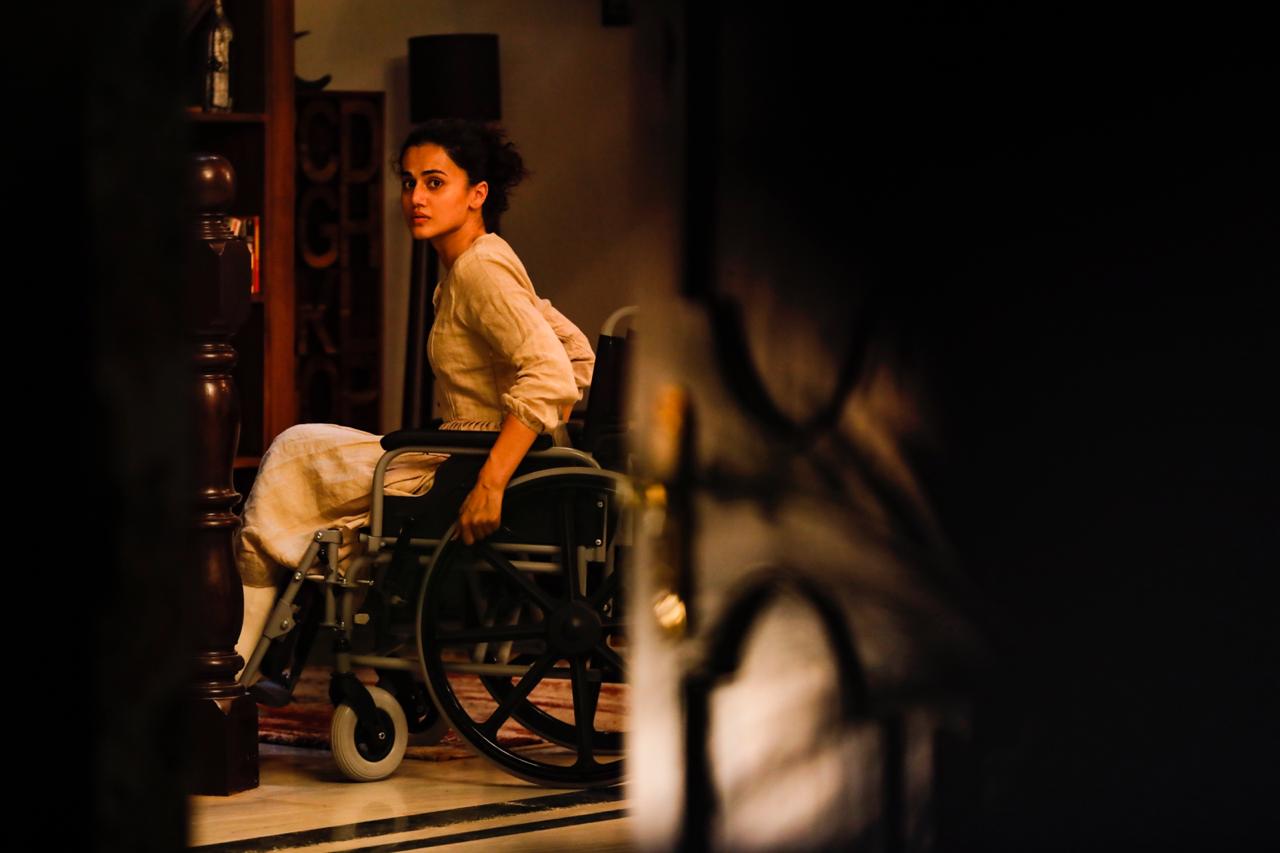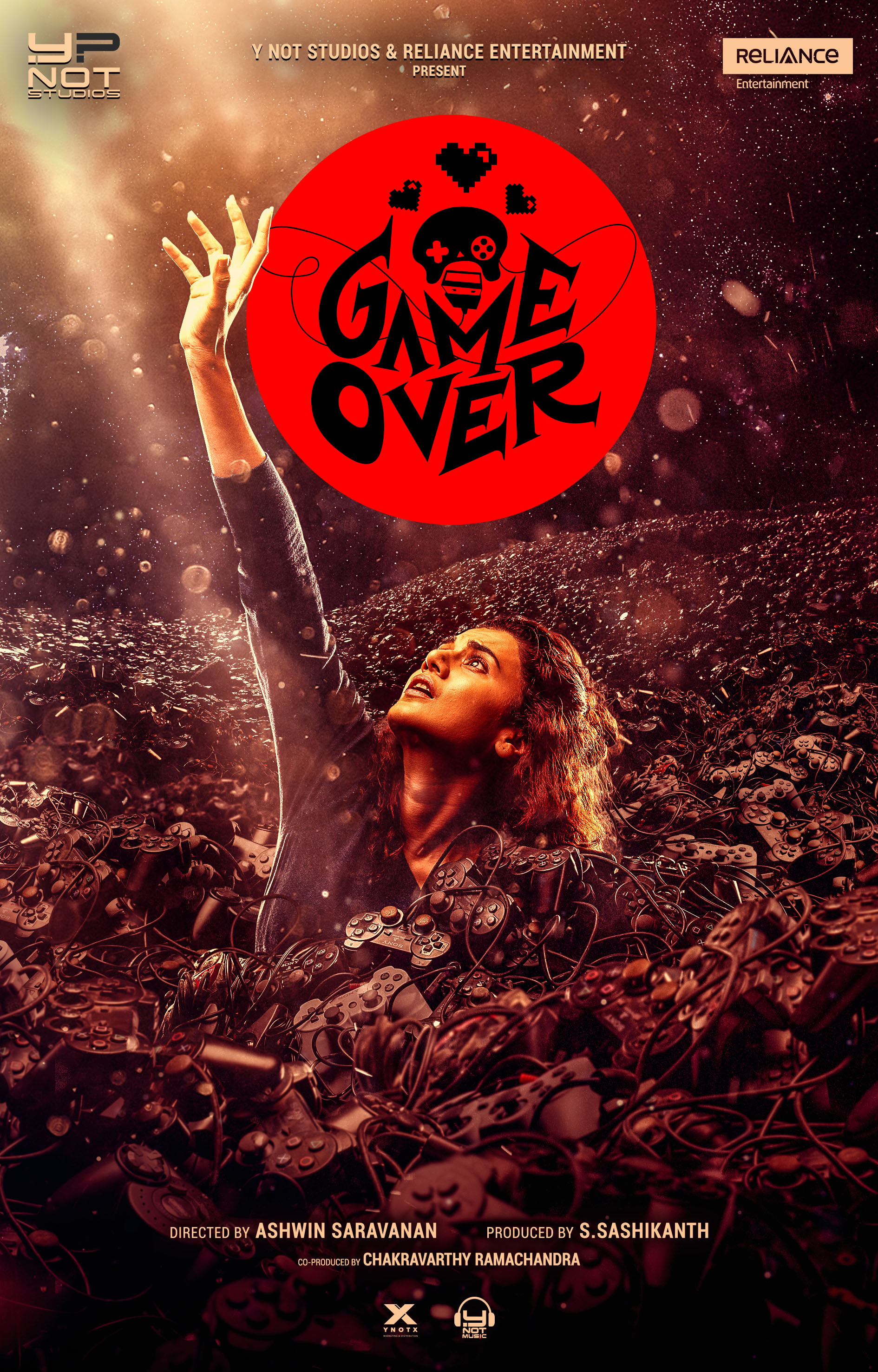Review – Game Over

Film Name: Game Over
RATING: Two and a half stars
Director: Ashwin Saravanan
Cast: Taapsee Pannu, Vinodhini, VJ Ramya and others
Cinematographer: A Vasanth
Music: Ron Ethan Yohann
Sound Design: Sachin Sudhakaran, Hari Haran (Sync Cinema)
Editor: Richard Kevin
Synopsis: A girl who has been raped on New Year’s eve suffers from an anniversary reaction because of the traumatic experience. In addition to that, she has Nyctophobia (a morbid fear of darkness) and is immobile, thanks to a suicide attempt that has left both her legs fractured. Under these circumstances, exactly a year later, she finds out that she is about to be attacked…again!
Director Ashwin Saravanan, who shot to fame with his first film Maya, is back again with a thriller that is reasonably engaging.
I hate to burst the bubble upfront, but no, Taapsee Pannu, who plays the lead role in the film, is not as spectacular as is being made out to be by some reviewers. In fact, that is the least an actor can do in that role, which provides a lot of scope for expression. That doesn’t mean the film doesn’t have its strengths though.
This film’s biggest strength is the music of Ron Ethan Yohann. His work along with that of sound design staff Sachin Sudhakaran and Hari Haran of Synch Cinema take this film into a completely different league, much higher than it otherwise would have been.
In fact, this film must be used in film schools to show what good music and sound design can do for a film. What the visuals and the acting fail to do, the sound does in style. It makes your heart tremble, where it needs to.
Ron Ethan Yohann’s work is nothing less than spectacular. At times, his music is soft enough to melt the hardest of hearts and at times, it is overpowering enough to shake the strongest of the lion-hearted. Ron is ably backed by his sound engineers who seem to have a fine understanding of their craft which they use exceptionally well to make the music top notch. Together, they lift this film.
The next biggest strength of the film is its narration. Director Ashwin Saravanan has a gift. Penning down a thought by itself requires skill. Transferring it onto the screen using powerful visuals requires much more than that—it requires insight, foresight and the ability to visualize. Ashwin, to a large extent, has all of these and he puts them to good use.

He slowly builds the plot in the first half and looks to capitalize on all that he has built in his second half. While the second half is reasonably exciting as the story picks up pace, the first is unbearably and excruciatingly slow. More importantly, it is downright depressing.
Ashwin gets brownie points for the detailing that has gone into constructing Taapsee’s character. Be it Anniversary reaction or nyctophobia, Ashwin seems to have a clear understanding of these psychological terms and uses them effectively to make Taapsee’s character credible.
What he deserves flak for is making the whole film a feminist issue. Let me tell you why this is a problem. A vast majority of people – both men and women– all over the world believe in taking the side of the victim, if it is established beyond reasonable doubt that he or she is the victim.
In other words, they look to stand up for victims and against perpetrators. Irrespective of a crime, this has always been the case. To most right thinking people, the gender, race, religion or ethnicity of a victim does not matter.
However, to feminists, gender matters and that colours things.
To them, all victims are female and all perpetrators male. They deeply believe in women ‘fighting’ for their ‘rights’ and by that they mean women must fight men. This idea is subconsciously brought out in the film.
‘Fight like a girl’ reads a card gifted by a single mother to her daughter. She gifts that card to Taapsee after her daughter’s death. If telling a boy to man up can be deemed sexist, then one can safely classify this phrase too as being sexist.
Forget technicalities, what statements like ‘Fight like a girl’ do is they distance a whole lot of right-thinking, well meaning men who, until then, are with the victim. These feminist statements make men take a step back and distance themselves from women, who are intent on seeing men as the enemy.
Next, the film’s narration is good but the motive behind the killings isn’t well established. Who are these men? Why have they chosen certain women? Are these psychopaths, sadists, perverts or criminals with antecedents? Are these the same people who beheaded a girl on an earlier instance? If so, were all three involved in the earlier attack or was only one of them involved in it? Were these three involved in the sexual assault on the protagonist a year ago or are they different? Several questions like these arise in your mind and Ashwin has no answers.
So, the involvement of the audience with the story is just limited to the proceedings on screen.
Moving on, with regard to performances of the artistes in the film, Vinodhini who plays a maid is just brilliant in the film. This actress, who has delivered several commendable performances, delivers yet another spot on performance in this film. Taapsee is just about okay as the lead protagonist.
All in all, the film’s first half is dull and depressing but Ashwin just about manages to make up for that in its second half.






